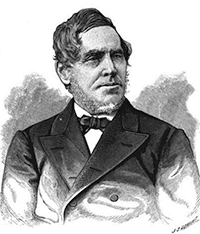
“My Country Tis of Thee” was first performed on July 4 that year, and went on to become the national anthem of the United States. Francis Scott Key’s stirring anthem “The Star-Spangled Banner” replaced it one hundred years later.
These and other American patriotic songs rekindle a pride of country that swells deep inside of me every time I hear them. Tunes like “Over There” and “You’re a Grand Old Flag” by George M. Cohan, and classics like “America The Beautiful” and “This Land is Your Land,” make me mushy. I tear up and give thanks, and I pray that as Americans, we will continue to earn the blessings God has bestowed upon us.
When I was a kid (a long time ago!) in elementary school, we started our days by singing patriotic songs and saying the Pledge of Allegiance…together. Sadly, this may not be the case anymore; as a result, our nation’s great musical heritage might be fading into obscurity as we become more and more diverse, and stray farther away from our historical roots.
I recently read a transcript of a National Public Radio broadcast that lent credence to this point. The reporter, Judith Kogan, said to feel the full impact of Martin Luther King Jr.’s “I Have A Dream” speech, it helps to be versed in the Declaration of Independence, the Bible, African American spirituals and a certain song.”
Recall Dr. King’s words:
“This will be the day when all of God’s children will be able to sing with new meaning, my country, ’tis of thee, sweet land of liberty, of thee I sing, land where my fathers died, land of the pilgrims’ pride, from every mountainside, let freedom ring.”
In her NPR report, Kogan interviewed E.D. Hirsch, an emeritus professor of education and humanities at the University of Virginia. Hirsch said songs about freedom and toleration were introduced in public schools in the 19th Century in hopes of building a nation based on these ideals.
He went on to say, “There’s got to be a sense – well, there is something that joins us as a community. You, as a Democratic, and I, as a Republican, do not belong to different tribes. The country was instituted to overcome this tribalism. So the sense of that larger community is where the patriotic songs come in. We share these songs, these hymns, so to speak.”
Kogan also did a quick survey among some young students who could not identify the lyrics to songs like “America the Beautiful” and “God Bless America,” driving home the point that something is being lost in America’s classrooms today.
Providence alone knows where we are headed. May God continue to bless America (the beautiful) as we journey together.
The last verse that Smith wrote:
Our Father’s God, to thee, Author of liberty,
To Thee we sing
Long may our land be bright
With Freedom’s holy light’
Protect us by Thy might
Great God, our King
-Samuel Francis Smith

Leave A Comment